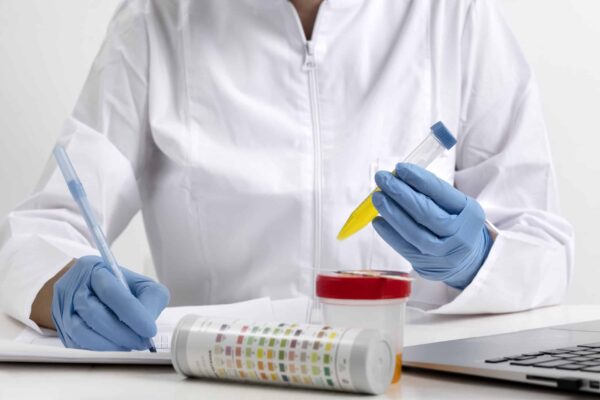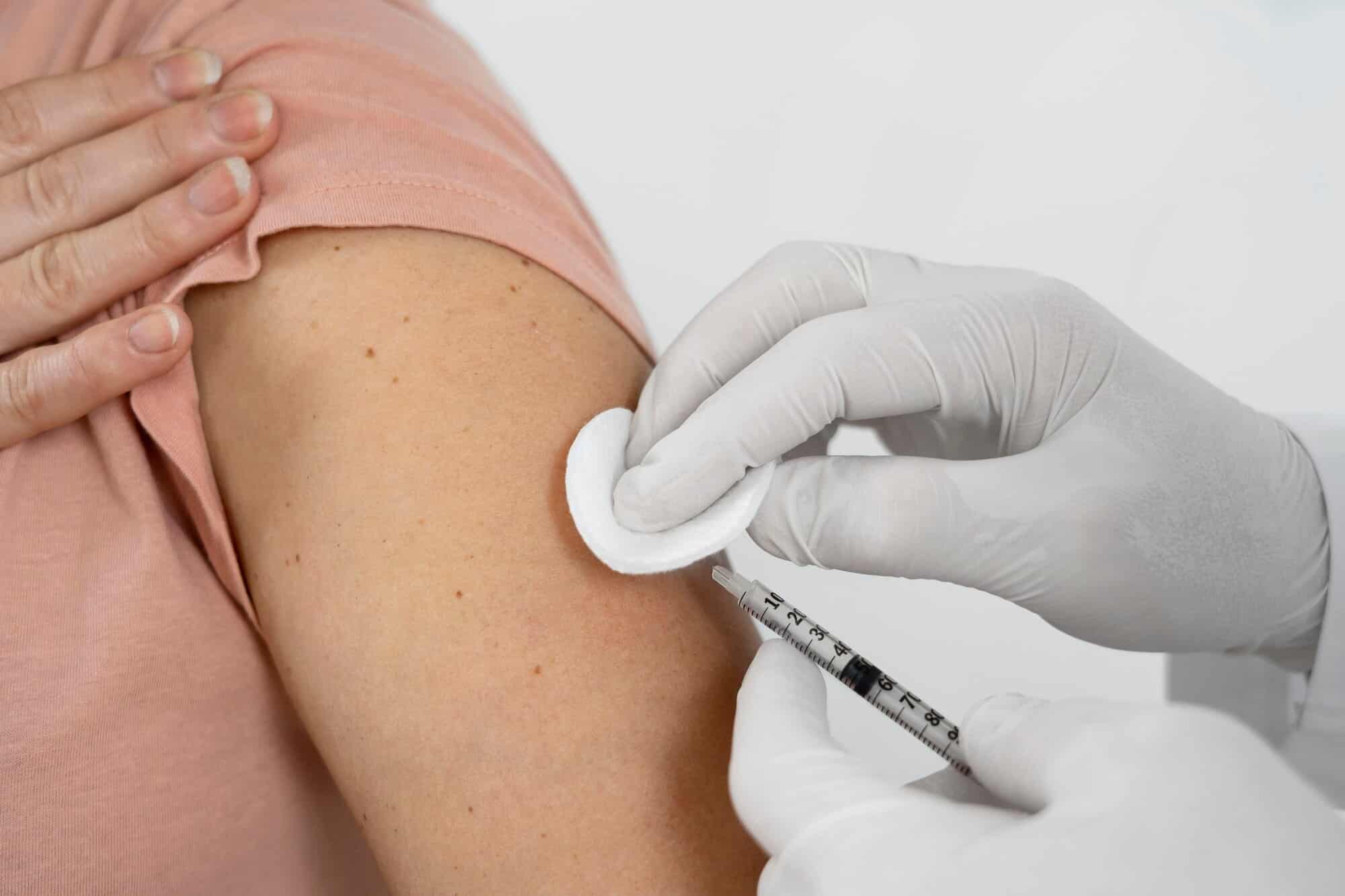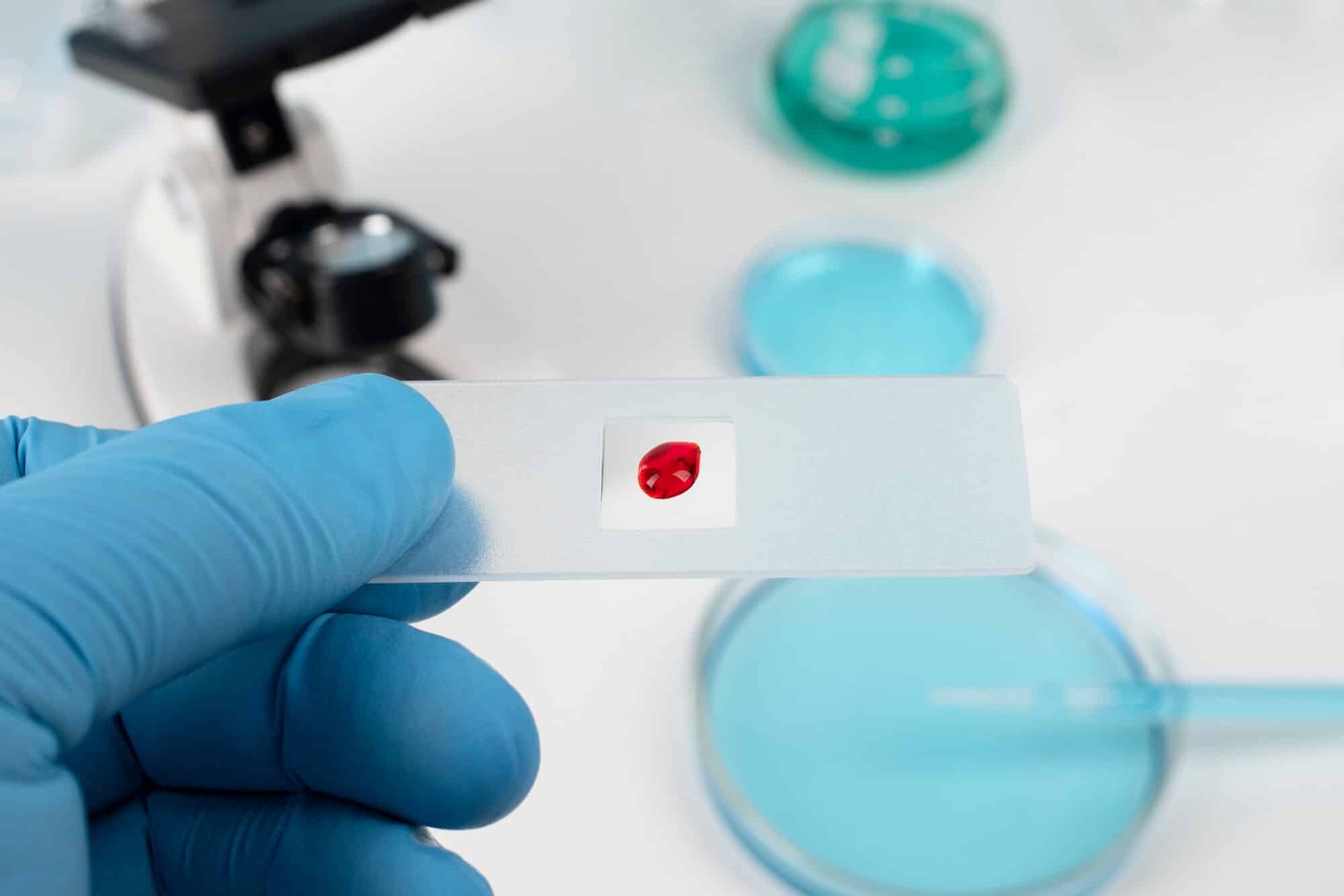
Genital herpes is an STI that causes blisters or sores in the genital area. Symptoms include itching, swelling, or painful blisters. Some people infected with this virus may have very mild symptoms or no symptoms at all. This blog covers everything you need to know about genital herpes, including symptoms, causes, and treatment.
What is Genital Herpes?
Genital herpes is a common STI (Sexually Transmitted Infection). It is caused by the virus called Herpes Simplex Virus (HSV-1 & HSV-2). This virus causes cold, herpetic sores, which are painful blisters (i.e., fluid-filled bumps). When these blisters break open and ooze fluid or sores on the genitals and anus, the virus can easily be transmitted through sexual contact. Generally, the virus enters your body through the mouth, genitals, or eyes. It can also enter your body through a cut, rash, or burn. Once infected, you will continue to have outbreaks of symptoms throughout your life.
Causes of Genital Herpes
Genital herpes spreads through skin-to-skin contact during sexual activity (genital or oral sex). This infection also spreads through kissing, foreplay, or non-penetrative sex.
Here are the two types of genital herpes:
HSV-1
The HSV-1 virus, commonly called oral herpes, results in cold sores and fever blisters in and around the mouth. A person who has the HSV-1 virus in the tissues of their mouth can pass the virus to the genitals of their sexual partner during oral sex. Recurrent outbreaks of genital herpes caused by HSV-1 are less frequent.
HSV-2
The HSV-2 virus is the most common cause of genital herpes. HSV-2 spreads during sexual activity, ultimately causing sores on the genitals. The recurrent outbreaks of genital herpes caused by HSV-2 are more frequent.
Even though blisters or sores facilitate the spread of the HSV virus, an infected person may still transmit the virus even in the absence of active blisters, sores, or other symptoms. Once infected, you will carry this virus for the rest of your life, as it is a sexually transmitted infection.
Signs and Symptoms of Genital Herpes
During the first outbreak, the first signs of genital herpes that you may notice are fever, headache, or swollen glands. Blisters or sores may also appear. Sometimes, genital herpes won’t cause any symptoms right away. The first outbreak of herpes often appears within a few days or a few weeks of exposure.
Here are the early signs of genital herpes:
- Small red blisters around the genital area
- Swelling in the groin, neck, or underarms
- Muscle aches
- Fever
- Headaches
- Tiredness
- Painful or difficult urination
- Flu-like symptoms and sometimes fever
- Itching or burning sensations in the genital or anal area
- Unusual vaginal discharge
These symptoms last a couple of weeks and may re-emerge again in the future. Sometimes, the first outbreak does not occur until months or years after a person is infected.
Treatment of Genital Herpes
There is no cure for genital herpes. However, your doctor will prescribe you an antiviral medicine to reduce your symptoms and risk of outbreaks.
Medication
Some commonly prescribed medications for genital herpes are Acyclovir (Zovirax), Famciclovir, and Valacyclovir (Valtrex). These antiviral pills provide the following benefits:
- Control outbreaks by reducing symptoms and duration
- Reduce the number of recurrences
- Reduces the possibility of passing the virus on to your sexual partner
You may also be prescribed topical medication for pain relief. If you notice any symptoms for more than four days, visit Equality Health Group and get tested to find out the cause. If you do have herpes, our doctors will immediately provide you with a consultation and the necessary medications.
Home Remedies
Your doctor may also suggest some home remedies for genital herpes, including the following:
- Use mild products for sensitive skin when bathing or showering in warm water.
- Keep the affected area clean and dry.
- Wear loose-fitting cotton underwear and clothes to keep the area comfortable.
- To relieve pain, pee while pouring water over your genitals.
- Apply petroleum jelly or topical painkillers to reduce pain when you pee.
How Does Genital Herpes Spread?
Genital herpes spreads in the following ways:
- Sexual contact with someone who has the virus
- Kissing or sexual contact with someone who has cold sores
- Touching a herpes sore followed by touching the genitals
- Transmission through pregnancy
Genital herpes does not spread through toilet seats, bedding, swimming pools, or touching other objects because the virus only spreads through human-to-human contact.
How to Prevent Genital Herpes?
If you want to prevent the risk of transmitting genital herpes, do the following:
- Strictly avoid sexual contact with another person until the sores have healed.
- Keep the sores clean and dry.
- Avoid touching the sores whenever possible, and wash your hands immediately afterward.
- Talk with your sexual partner about your STI status.
- Always use condoms and dental dams during all sexual activity.
- Do not share sex toys.
Genital herpes can remain dormant for a long time until it is triggered. Here are some triggers that you can avoid:
- UV light (from sunbathing or sunbeds)
- Friction in your genital area
- Smoking
- Drinking alcohol
Some common triggers that are more difficult to avoid include:
- Stress
- Menstruation
- Surgery on your genital area
- A weakened immune system
Conclusion
While there is no cure for genital herpes, prescribed antiviral medications significantly reduce the number and symptoms of outbreaks, improving the quality of life for those affected. To reduce transmission, always practice safe sex and open communication with your sexual partners. If you think you might have symptoms, seek professional medical advice from Equality Health Group. We will help you develop a proactive approach to your sexual health and well-being.
Frequently Asked Questions (FAQs)
Genital herpes is most present during outbreaks. It’s important to avoid sexual contact during outbreaks to reduce the risk of transmission.
The first genital herpes outbreak may appear a few days to a few weeks after contracting the virus. However, it can take much longer.
The first symptoms of genital herpes can include a fever, painful urination, blisters, and flu-like symptoms.
Genital herpes cannot be cured, but the outbreaks come and go. For most people, the first outbreak lasts from 2 to 3 weeks. Future flare-ups are often less severe and do not last as long.
Absolutely! With proper medication, medical advice, safe sexual practices, and self-care, you can live a normal, healthy life with genital herpes.
Yes, using condoms and dental dams during oral, anal, and vaginal sex can prevent genital herpes. You can also talk to your doctor and get prescription antiviral medications that lower the chance of spreading herpes.





